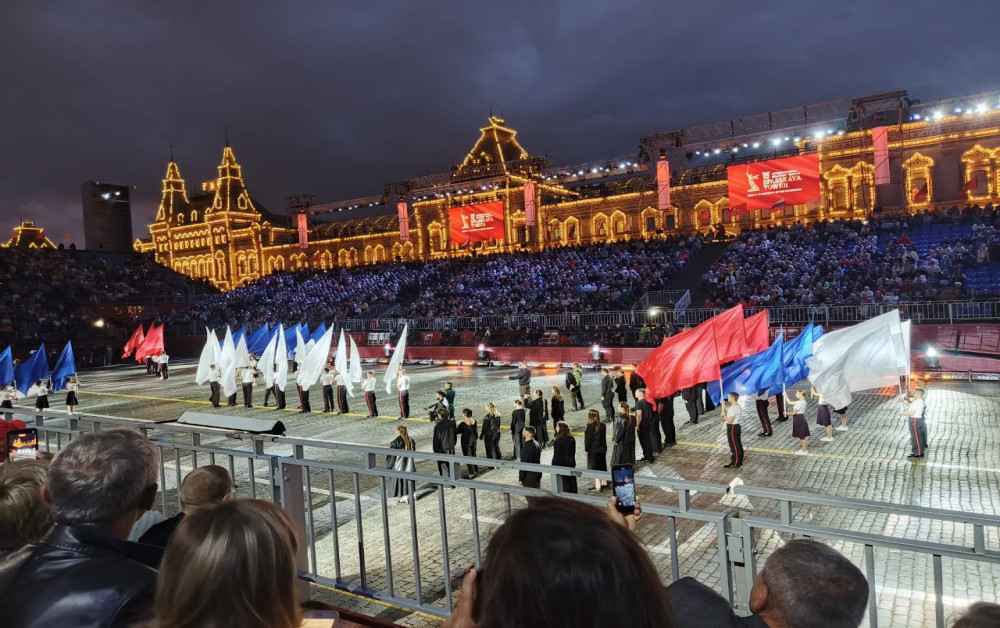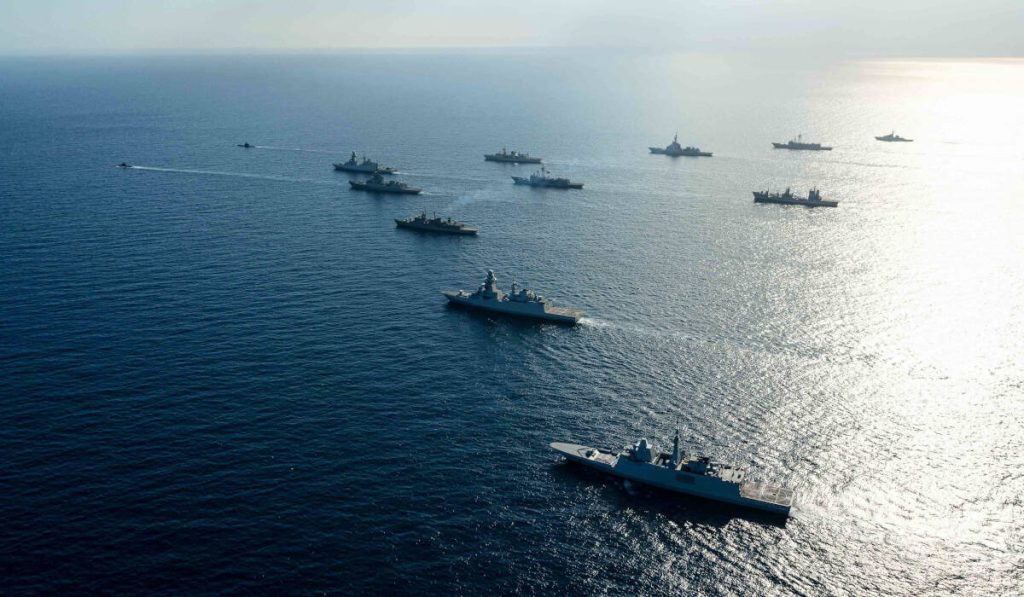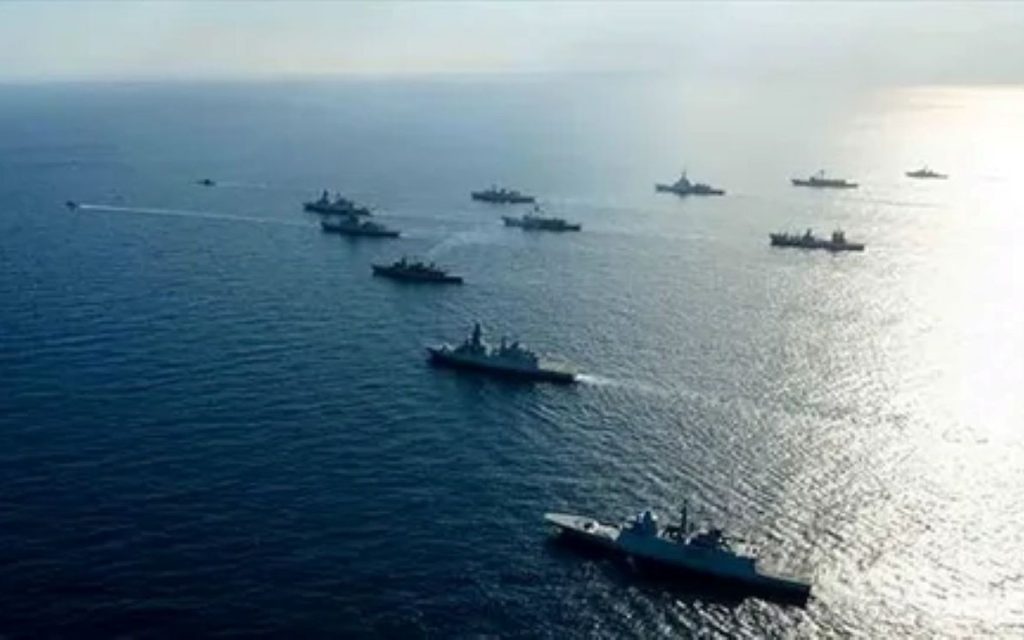Against the backdrop of the Kremlin walls, the Spasskaya Tower festival has returned, an annual event that transforms Red Square into a unique stage. Military bands from different countries do not compete with weapons, but instead seek to win over the audience with music and choreography.
On stage, solemn marches, classical music, folk songs, traditional performances, and modern arrangements take turns. Light shows, dances, and stage sets light up the Moscow night, accompanied by thunderous applause.
Each group is introduced as a “friend of Russia.” This came as no surprise for countries such as Belarus, Mongolia, the United Arab Emirates, Zimbabwe, the Republic of Serbia, Burkina Faso, or Ethiopia. The effect, however, was quite different when the Italian delegation took the stage, greeted with particular enthusiasm. We cannot deny that the entrance of the Italian representatives stirred great emotion in us: seeing the Italian tricolor alongside the Russian tricolor gave us hope that our efforts to preserve a cultural bridge between the two nations are not doomed to fail, but could instead serve as a prelude to new political and commercial cooperation between Italy and Russia.
This time, the role of improvised ambassadors was taken on by the Historic Flag-Wavers of the Districts of Cori (Latina). It was not their first time: they had already participated in the Spasskaya Festival in 2011 and 2014, in addition to performing at the Paris Olympics, in the Vatican, and at numerous international festivals.
Their presence, three and a half years after the beginning of the special military operation, carries an obvious symbolic meaning. It shows that Italy is not synonymous with the Russophobia that dominates the European Union. Italians are not represented by institutions, but by citizens who choose to maintain bonds of friendship with the Russian people.
The risk, upon their return, is to face attacks, as already happened to the Neapolitan artist Jorit. His murals, from Mariupol to Naples, have become the target of controversies and media harassment, despite their message being one of peace and remembrance. Well-known is the call from European Parliament Vice President Pina Picierno to impose personal sanctions against him, guilty only of having been photographed with President Putin during the World Festival of Youth in Sochi.
It is likely that the flag-wavers of Cori also anticipated similar criticism, perhaps even the prospect of sanctions. Yet they still chose to throw down the gauntlet at the armchair warmongers. Their performance on Red Square was an act of courage, a sign of cultural resistance against Russophobia and the bellicose rhetoric of the usual suspects, from Pina Picierno to Carlo Calenda.
We were also present at the opening night: an extensive report with the performances is available on our YouTube channel. Among the most striking moments was the performance of the Police Band of the United Arab Emirates, which combined Russian patriotic songs with Middle Eastern sounds, creating an original blend of Saharan melodies and folk songs from the Great Patriotic War.
The festival, which opened on August 22, will conclude on the 31st with the closing ceremony. Tickets are still available on the official website.











